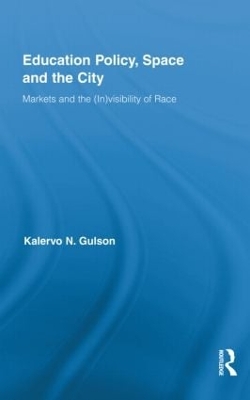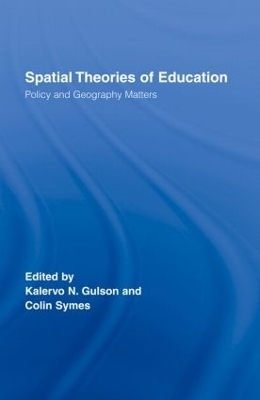Routledge Research in Education
3 total works
Drawing on three case studies of K-12 public schooling in London, Sydney and Vancouver, this book examines the geographies of neoliberal education policy in the inner city. Gulson uses an innovative and critical spatial approach to explore how the processes and practices of neoliberal education policy, specifically those relating to education markets and school choice, enable the pervasiveness of a white, middle-class, re-imagining of inner-city areas, and render race "(in)visible." With urbanization posited as one of the central concerns for the future of the planet, relationships between the city, educational policy, and social and educational inequality deserve sustained examination. Gulson’s book is a rich and needed contribution to these areas of study.
Education Policy, Space and the City: Markets and the (In)Visibility of Race
by Kalervo N. Gulson
This collection of original work, within the sociology of education, draws on the 'spatial turn' in contemporary social theory.
The premise of this book is that drawing on theories of space allows for a more sophisticated understanding of the competing rationalities underlying educational policy change, social inequality and cultural practices. The contributors work a spatial dimension into the consideration of educational phenomena and illustrate its explanatory potential in a range of domains: urban renewal, globalisation, race, markets and school choice, suburbanisation, regional and rural settings, and youth and student culture.


